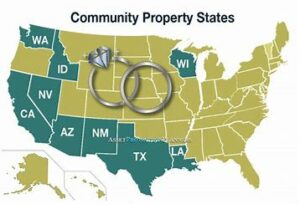
Divorce and Community Property
3,142 counties equals 3,142 different flavors of divorce. This is your divorce – don’t let it happen to you
Storey Jones
Everyone starts a legal consultation asking the same questions in a variety of ways, “How much will I get?” or “How much will I have to give?” “How can I keep the house?” “What do we do about the debt?” or, “Well clearly since he/she (fill in the blank) drinks, uses drugs, is absentee, stopped working, is depressed, spends all the money… then I will get what I ask for, right?”
The biggest surprise of all is that no one really knows for sure. If you listen carefully, every lawyer will give you an educated guess, or base their response on a similar case, but they will surround any suggestion of an outcome with 101 disclaimers because the truth is, they don’t really know.
How could a lawyer who has practiced in a particular county for a few years or a few decades not know for sure? The dissolution of a marriage or a domestic partnership is a transaction governed by state laws and local bias. In family law court, there are two types of family law code, Community Property and Equitable Distribution, but there is wide interpretation of that code by judges across over 3,000 counties. Judges have a tremendous amount of latitude in the interpretation of how the law applies to each situation. It is widely known that even different judges in the same county might rule differently on the same set of facts which is often why lawyers will try to get a case moved to a different judge. Each and every family situation is complex and the issues and nuances unique, therefore it is impossible to know exactly what to expect should your case go to court. Most spouses do not realize the degree to which the local bias and judge can impact the outcome. Sometimes just the tenor of the cases heard in the morning can affect the judge’s reaction and ruling to a case heard that afternoon. The lack of predictability around what spouses often believe are clear paths to a fair and equitable settlement is unsettling.
This is precisely why it is imperative to spend time educating yourself about Divorce and Community Property https://www.seasonsofdivorce.com/CommunityProperty organizing the facts Get Organized developing forward-looking budgets and if at all possible, actively contributing to a creatively structured settlement that avoids court altogether. This will allow you to better participate and contribute to the outcome of your own case. This is your divorce- don’t let it happen to you.
How could a lawyer who has practiced in a particular county for a few years or a few decades not know for sure?
It is also important to note that how it is supposed to work and how it actually works, are two very different concepts. The law dictates, for example, that each spouse provide full and complete financial disclosure, but what if they don’t? A parenting plan is meant to be legal and binding, but what if one parent simply decides to ignore it? These and other situations are the reality of how it actually works, and it is so frustrating, but that is the current system. Depending on the court, the judge, and myriad other factors, it can feel as if no one cares and no one can or will make your spouse do what he/she is supposed to do. We know. We don’t have all the answers, but we absolutely do know that whenever possible it is better to design the outcome with your spouse rather than risk a third party’s interpretation. it is essential to your mental health, your family’s emotional health and your financial future to be empowered with education, financial tools, parenting tools and a mindset to complete this detour and get back on the main road. That’s where Seasons of Divorce comes in, helping you to create an outcome that will prepare you for the transition of your lifetime.
The materials available at this web site are for informational purposes only and not for the purpose of providing legal advice. You should contact your attorney to obtain advice with respect to any particular issue or problem. Use of, and access to, this Web site or any of the e-mail links contained within the site do not create an attorney-client relationship between Dtour, Inc., dtour.life or any affiliate of Dtour, Inc. Seasons of Divorce and the user or browser. Any opinions expressed at or through this site are the opinions of the individual author and may not reflect the opinions of Dtour, Inc. or dtour.life or Seasons of Divorce


 Be Advised always check
Be Advised always check
 National Association of Divorce Professionals
National Association of Divorce Professionals




 and your latest statement.
and your latest statement.


